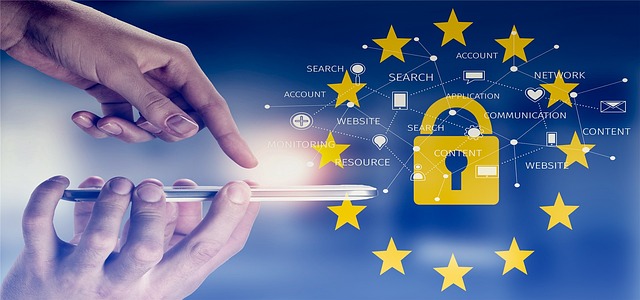Introduction
In today’s digital age, concerns about data privacy and security have become increasingly important. Individuals are seeking ways to regain control over their personal information and protect themselves from the vulnerabilities of centralized identity systems. One promising solution that has emerged is decentralized identity systems powered by smart contracts. This article explores the concept of decentralized identity systems and how they empower individuals to take charge of their data. So, if you are looking for a reliable trading platform, you may consider visiting chain-reaction-trading.com.
What is a Decentralized Identity System?
A decentralized identity system, also known as a self-sovereign identity system, is a framework that allows individuals to manage their own digital identities without relying on third-party intermediaries. Unlike traditional identity systems, which are often centralized and controlled by authorities or organizations, decentralized identity systems give individuals full ownership and control over their personal data.
How Do Decentralized Identity Systems Work?
Decentralized identity systems utilize blockchain technology to provide a secure and tamper-resistant infrastructure. They leverage cryptographic principles to establish a unique digital identity for each individual. This identity is stored on a distributed ledger, ensuring immutability and transparency. Instead of relying on centralized databases, the information is spread across multiple nodes, making it resilient to hacking attempts and single points of failure.
Benefits of Decentralized Identity Systems
Decentralized identity systems offer several advantages over their centralized counterparts. Firstly, they empower individuals to control their data and decide who has access to it. With the use of private keys, individuals can authenticate themselves and share specific attributes without revealing unnecessary personal information. This enhanced privacy and selective disclosure minimize the risk of data breaches and identity theft.
Secondly, decentralized identity systems foster interoperability between different platforms and services. Instead of creating separate accounts for each online service, individuals can use their decentralized identity across multiple applications, streamlining the user experience and reducing the need to manage numerous usernames and passwords.
Challenges and Concerns
While decentralized identity systems hold great promise, they are not without challenges and concerns. One major challenge is user adoption. Shifting from centralized systems to decentralized alternatives requires a paradigm shift in thinking and a willingness to embrace new technologies. Additionally, ensuring the usability and user-friendliness of decentralized identity systems is crucial for widespread acceptance.
Another concern is the potential for malicious actors to exploit vulnerabilities in smart contracts. While smart contracts are an integral part of decentralized identity systems, they are also subject to coding errors and security risks. Thorough auditing and testing of smart contracts are essential to mitigate these risks and build trust in the system.
Smart Contracts and Decentralized Identity Systems
Smart contracts play a vital role in decentralized identity systems. They are self-executing contracts with predefined rules and conditions. Smart contracts enable individuals to manage their digital identities, control access to their data, and automate identity-related transactions. By using smart contracts, individuals can establish trusted relationships and interact securely with other participants in the decentralized identity system.
The Role of Blockchain in Decentralized Identity Systems
Blockchain technology serves as the underlying infrastructure for decentralized identity systems. Its inherent characteristics of immutability, transparency, and decentralization make it well-suited for managing digital identities securely. The blockchain acts as a decentralized ledger, recording and verifying identity-related transactions, ensuring trust and eliminating the need for a central authority.
Future Implications
The rise of decentralized identity systems has far-reaching implications for various industries and society as a whole. With increased control over personal data, individuals can protect their privacy and reduce the risk of data breaches. Moreover, decentralized identity systems can foster trust, transparency, and accountability in digital interactions, creating a more equitable and inclusive online ecosystem.
In the future, we can expect to see wider adoption of decentralized identity systems across sectors such as e-commerce, supply chain management, voting systems, and even government services. As the technology matures and user-friendly solutions emerge, decentralized identity systems have the potential to reshape the way we interact and transact online, empowering individuals and revolutionizing the digital landscape.
Conclusion
Decentralized identity systems powered by smart contracts offer a promising solution for individuals seeking greater control over their data. By leveraging blockchain technology, these systems provide secure, tamper-resistant, and privacy-enhancing mechanisms for managing digital identities. The benefits of decentralized identity systems extend to various sectors, including healthcare, finance, and credentials management. However, challenges remain, such as user adoption and security considerations. With ongoing development and innovation, decentralized identity systems have the potential to revolutionize the way we manage and protect our digital identities.



